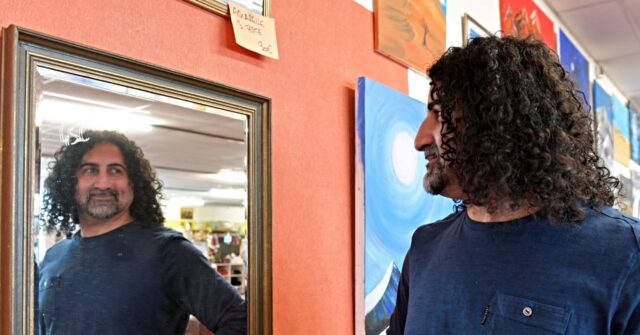Omar bin Laden, the fourth son of the late al-Qaeda leader Osama bin Laden, has been officially barred from returning to France, according to France’s Interior Minister Bruno Retailleau. The decision was made in response to social media activity in which the 43-year-old allegedly glorified terrorism. Omar had been living in a small village in Normandy until his expulsion last year. Following the revocation of his residency permit—prompted by his controversial online posts—he subsequently relocated to Qatar, where he continues to pursue his passion for art, specifically landscape portraits.
Omar bin Laden’s previous stay in France began in 2016 when he acquired a residency permit through his marriage to a British citizen, Zaina Mohamed Al-Sabah. However, his controversial online presence led to heightened scrutiny from French authorities. The specific issue that sparked the termination of his residency permit was his content commemorating the anniversary of his father’s death. While he lived a relatively quiet life focused on the arts, his familial connections and social media activity drew the unwanted attention of French officials who remained vigilant against any potential threats to national security.
The decision to bar Omar bin Laden from re-entering France aligns with a broader initiative by the French government to tighten immigration regulations and ensure that individuals associated with extremist ideologies are not allowed to reside within its borders. Minister Retailleau’s comments followed a meeting with 21 prefects, who oversee various French departments. Their discussions emphasized the need for more efficient processes, particularly regarding the legal measure known as the “obligation to leave French territory” (OQTF), which is primarily implemented to deport foreign nationals deemed undesirable or dangerous.
Omar bin Laden’s past is marked by his departure from his father’s influence in the early 2000s after receiving training in jihadist camps in Afghanistan. Despite his lineage, he has attempted to carve out his own identity away from the notoriety of his father. While he engaged in a legal art career, the underlying implications of his family background and his recent activities may suggest a lingering connection to his father’s legacy, which poses a potential risk to public safety and national security in France.
As discussions within the French government unfold regarding immigration policies, the case of Omar bin Laden underscores the delicate balance between civil liberties and security concerns. Retailleau’s actions serve as a tangible example of the government’s commitment to addressing potential threats posed by individuals with extremist ties. The public’s reaction remains divided, with some supporting the government’s stance while others view it as an infringement on personal freedoms. This highlights the complex nature of counter-terrorism efforts in contemporary France.
In conclusion, Omar bin Laden’s ongoing exile from France exemplifies the heightened vigilance of the French government in monitoring individuals with extremist connections. The order barring his return raises significant questions about the intersection of personal history, public safety, and national policy. As France confronts the challenges related to immigration and radicalization, the case may serve as a reference point for future decisions concerning individuals whose backgrounds evoke national and global security concerns.

